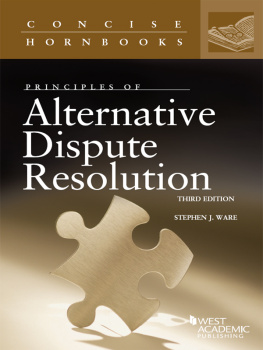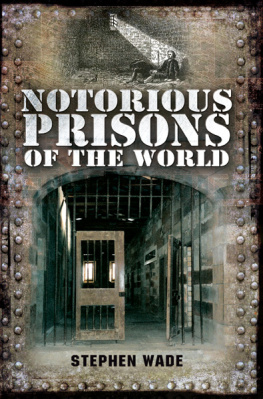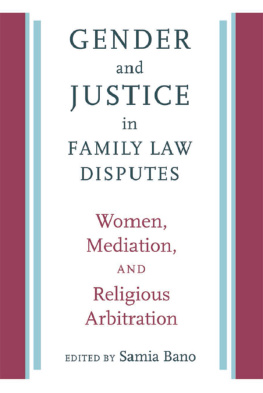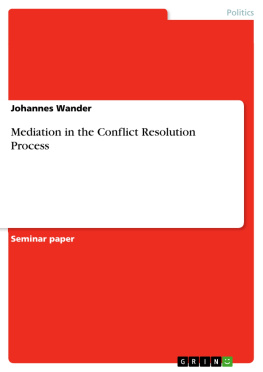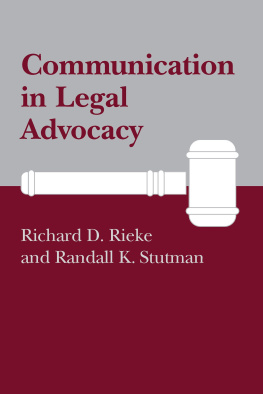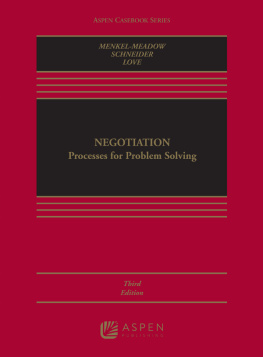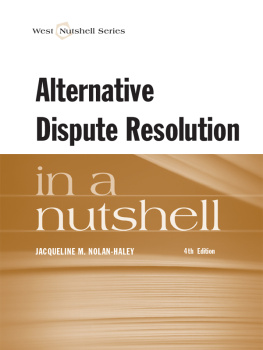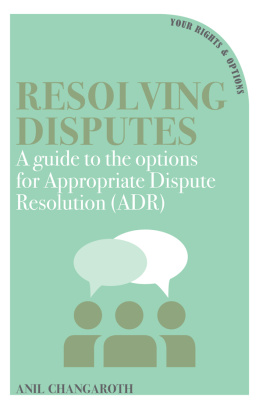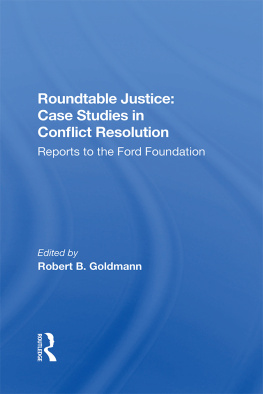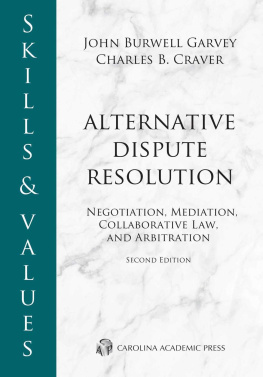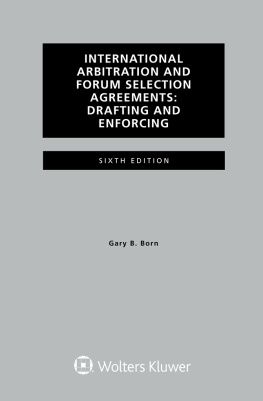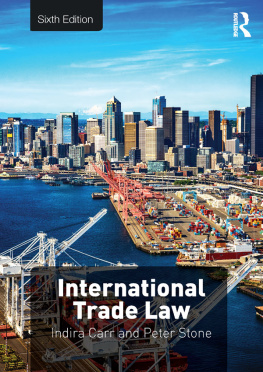Page list

WEST ACADEMIC PUBLISHINGS
LAW SCHOOL ADVISORY BOARD
__________
JESSE H. CHOPER
Professor of Law and Dean Emeritus,
University of California, Berkeley
JOSHUA DRESSLER
Distinguished University Professor, Frank R. Strong Chair in Law
Michael E. Moritz College of Law, The Ohio State University
YALE KAMISAR
Professor of Law Emeritus, University of San Diego
Professor of Law Emeritus, University of Michigan
MARY KAY KANE
Professor of Law, Chancellor and Dean Emeritus,
University of California, Hastings College of the Law
LARRY D. KRAMER
President, William and Flora Hewlett Foundation
JONATHAN R. MACEY
Professor of Law, Yale Law School
ARTHUR R. MILLER
University Professor, New York University
Formerly Bruce Bromley Professor of Law, Harvard University
GRANT S. NELSON
Professor of Law, Pepperdine University
Professor of Law Emeritus, University of California, Los Angeles
A. BENJAMIN SPENCER
Earle K. Shawe Professor of Law,
University of Virginia School of Law
JAMES J. WHITE
Robert A. Sullivan Professor of Law Emeritus,
University of Michigan
i
PRINCIPLES OF ALTERNATIVE DISPUTE RESOLUTION
Third Edition
Stephen J. Ware
Professor of Law
University of Kansas
CONCISE HORNBOOK SERIES

ii
The publisher is not engaged in rendering legal or other professional advice, and this publication is not a substitute for the advice of an attorney. If you require legal or other expert advice, you should seek the services of a competent attorney or other professional.
West, a Thomson business, 2001
2007 Thomson/West
2016 LEG, Inc. d/b/a West Academic
444 Cedar Street, Suite 700
St. Paul, MN 55101
1-877-888-1330
Printed in the United States of America
ISBN: 978-1-63459-574-2
iii
For Catherine K. and R. Timmis Ware
v
Preface
__________
Prior to the 1970s, lawyers did not talk about Alternative Dispute Resolution. They did, however, practice ADR. They negotiated settlement agreements and they represented clients in arbitration. Such activities have long been performed by lawyers. Only in the last forty or so years, though, has ADR emerged as a distinct field of study in law school. This book is an outgrowth of that emergence.
This book surveys ADRarbitration, negotiation, mediation, and other processes of dispute resolution. This book is written with one overriding goal, to serve as a clear and reliable statement of the law and concepts central to ADR. So this book should be useful to lawyers and scholars researching ADR.
The literature on ADR is large and growing. Not only does the ADR literature represent a wide variety of views, it represents a wide variety of approaches. Much of what is written on ADR consists of prescriptive guidance for practitioners, containing suggestions on how to be a better mediator, for example. Other ADR writings are descriptive or empirical, in the manner of social science. Finally, some ADR writings are theoretical, even philosophical, and occasionally theological.
In the midst of all this rich diversity, law can get lost. Law does not get lost in this book, however. This is a law book, written by a lawyer, for lawyers and law students.
A large body of legal doctrinefrom statutes, judicial decisions, and other sourcesfocuses on ADR. This doctrine is prominent throughout this book, even in the sections addressing the practice of ADR, because the practice of ADR is pervasively influenced by the law of ADR. This book is written with the conviction that the law of ADR is every bit as important and challenging as the law of other fields, so ADR deserves its own Hornbook.
The first edition of the ADR Hornbook was published in 2001, and the second edition in 2007. This third edition is updated to reflect intervening developments in the law. It also contains new material on topics not addressed in the first two editions. The ADR Hornbook has expanded as the field of ADR has expanded.
Thanks to the people who contributed helpful suggestions for this third edition: Chris Drahozal, John Head, Jay McCauley, Peter (Bo) Rutledge, Hiro Aragaki, and David Horton, each of whom was kind enough to read a draft of at least a section of a chapter. Thanks vi also to the many student research assistants who helped with various portions of this book over several years, Tyler Manson, Michael Grigsby, Kelley Reynolds, Cate Zollicker, Michael Keenan, Matt ONeil, Rebekah Pinkston, Jeff Pyle, Mark Wilkins, Chapman Williams, Robin Randolph, Scott Girard, Mike Lee, Kristin Ballobin, Laurel Kupka, Alex Aguilera, Barbie Daymude, J.B. Daniel, Aaron Bowen, and Marty Rice.
This book was written with the support of the University of Kansas, for which I am grateful.
STEPHEN J. WARE
June 2, 2016
vii
Note to Teachers
__________
This Hornbook is designed to be used as the primary or secondary text in a law school course. In the United States, casebooks, rather than Hornbooks or other treatises, are the primary texts in most law school courses, and casebooks work well at the center of law school courses that emphasize Socratic dialog and thinking like a lawyer. By contrast, many dispute-resolution teachers design their courses to develop a wider array of practice skills, generally through the use of role-playing exercises. I believe this Hornbook is especially well-suited to be the primary text for such courses. Because this book is clear and concise, students reading it can quickly gain a solid understanding of ADRs central concepts and legal doctrines. This efficient use of time enables the ADR teacher to devote many class sessions to role-playing exercises, and discussion of them. Excellent role-playing exercises are available from several sources, including:
Willamette University Center for Dispute Resolution http://www.willamette.edu/modules/simbank/login.cgi
Harvard Program on Negotiation http://www.pon.harvard.edu/store/
University of Missouri Center for the Study of Dispute Resolution http://law.missouri.edu/drle/teaching/simulations-and-exercises-various-simulations-and-materials/
American Bar Associations Dispute Resolution Resource Database http://www.americanbar.org/directories/dispute-resolution.html
Of course, individual instructors can also create their own role-playing exercises.
In addition to serving as the primary text for ADR courses that emphasize role-playing exercises, this Hornbook can also serve as the primary text for ADR seminars. In a seminar course, students generally read scholarly articles and write their own substantial papers. Before venturing into a field of scholarship, students generally need a solid foundation in the fields central concepts and legal doctrines. This book provides that foundation with only a limited amount of reading, thus enabling students to devote substantial time to the seminars more-advanced work of reading scholarly articles and writing original papers.
viii
Whatever the format of an ADR course, the instructor must consider how to organize the material to be covered. Notably, this book covers arbitration before negotiation and mediation. While many ADR books cover arbitration after negotiation and mediationand I taught ADR that way for several yearsI switched my ADR course to the arbitration first format and find that it generally works better for two reasons: one pedagogical, the other conceptual.

